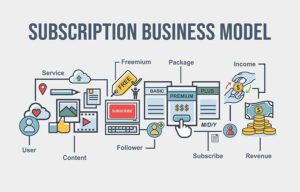Fixed asset accounting is the process of capitalizing the purchase cost, allocating the cost over the asset’s useful life via depreciation, testing the fixed asset for impairment, and removing the fixed asset from the books following a disposal. We go over each in detail and provide examples. 1. Accounting for the Fixed Asset Cost The…
What is
What Is Impulse Buying & How to Leverage
Impulse buying refers to unplanned or spontaneous purchases that shoppers make on a whim due to an emotional response at the moment of seeing the item. Impulse buying can happen both in brick-and-mortar stores and online. This guide will explore why people buy impulsively, what items are most frequently purchased, and how you can capitalize…
What Is a Disregarded Entity for Tax Purposes?
A disregarded entity is a business that’s not separate from its owner for federal tax purposes—the owner reports and pays the business portion of income and taxes on their tax return. This information is often reported on Schedule C, but you may also find it on Schedule E or Schedule F. Filing Requirements of Disregarded…
Guide To Small Business LLC Taxes & LLC Tax Returns
Generally, limited liability company (LLC) taxes are reported as a sole proprietor on Form 1040 Schedule C if there is only one owner or on Form 1065 as a partnership if there are multiple owners. Sole proprietors and partnerships are flow-through entities, so the income is taxed on the owner’s tax return. However, it may…
What Is a Subscription Business Model & How Does It Work?
A subscription business model is a type of business where customers subscribe to goods or services, pay for them at a set recurring rate, and then receive them on a certain cadence. I am confident when I say that everyone reading this article is a customer of a subscription business. Do you have your trash…
What Is a Guaranteed Payment to a Partner?
A guaranteed payment is a specified payment that partnerships pay to their partners for service or use of capital (as if they were made to a person who is not a partner). These payments are made without any regard for the profits of the partnership. The goal of paying guaranteed payments is to assure that…
What Is Accumulated Earnings Tax: How To Avoid It & More
The accumulated earnings tax (AET) is a penalty imposed by the IRS on corporations for keeping earnings for longer than they need to run their businesses rather than paying out dividends to shareholders. The goal of the tax is to discourage corporations from accumulating excessive funds to avoid shareholder-level taxes. Corporations can avoid being exposed…
What Is a Reasonable Salary for an S-corp Shareholder?
What makes an S corporation (S-corp) salary reasonable depends on several factors, such as the type of work being done, business standards, and company profit. Setting a reasonable salary is important for operating an S-corp and also keeps the IRS from reclassifying your distribution and exposing you to penalties, interest, and additional taxes. Factors Affecting…







